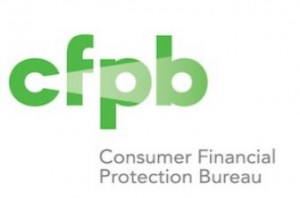 Representative Carolyn B. Maloney (D-New York), Andy Barr (R-Kentucky), along with 252 other House Members have wrote a letter to the Consumer Financial Protection Bureau (CFPB) requesting a grace period that would help lenders and home buyers comply with new TILA-RESPA Integrated Disclosure regulation.
Representative Carolyn B. Maloney (D-New York), Andy Barr (R-Kentucky), along with 252 other House Members have wrote a letter to the Consumer Financial Protection Bureau (CFPB) requesting a grace period that would help lenders and home buyers comply with new TILA-RESPA Integrated Disclosure regulation.
“Even with significant advance notice, understanding how to implement and comply with this regulation will only become clear when the industry gains experience using these new forms and processes in real-life situations,” the House Members wrote to CFPB Director Richard Cordray.
The Truth in Lending Act (TILA) – Real Estate Settlement Procedures Act (RESPA) Integrated Disclosure (TRID) regulation that is required by the Dodd-Frank Wall Street Reform Act is set to take effect in August 1, 2015 at the peak of homebuying season. It was finalized late in 2013 following a comment period and months of education, training, and preparation on the part of lenders. Preparations have continued as many lenders take the necessary steps to make sure they have all the systems in place and are in complete compliance with the new rule. The new rule’s main function is to simplify complex disclosure forms for homebuyers.
Congress members argue that the rule will place challenges on the entire housing industry and families that are looking to buy a home before the school year begins.
Congressman Steve Pearce (R-New Mexico) and Brad Sherman (D-California) attempted to address TRID anxieties earlier this month by introducing a bill (H.R. 2213) that would provide temporary leniency from lawsuits and law enforcement concerning compliancy among institutions. Their proposal noted two conditions for which a person may be pardoned for failure to comply: (1) if the person has made a good-faith effort to comply with the requirements and (2) the conduct alleged to be in violation of the requirements occurred on or before December 31, 2015. This would give stakeholders and the CFPB the opportunity to test the effectiveness of the rule. If passed, it would remain in effect until January 1, 2016.
“As the TRID regulation does not provide lenders an opportunity to start using the new disclosure form prior to the August 1st implementation date, market participants will not be able to test their systems and procedures ahead of time, which increases the risk of unanticipated disruptions on August 1st. That is why we believe that a grace period for those seeking to comply in good faith from August 1st through the end of 2015 would be particularly useful in these circumstances.”

 theMReport.com Your trusted source for mortgage banking news
theMReport.com Your trusted source for mortgage banking news








